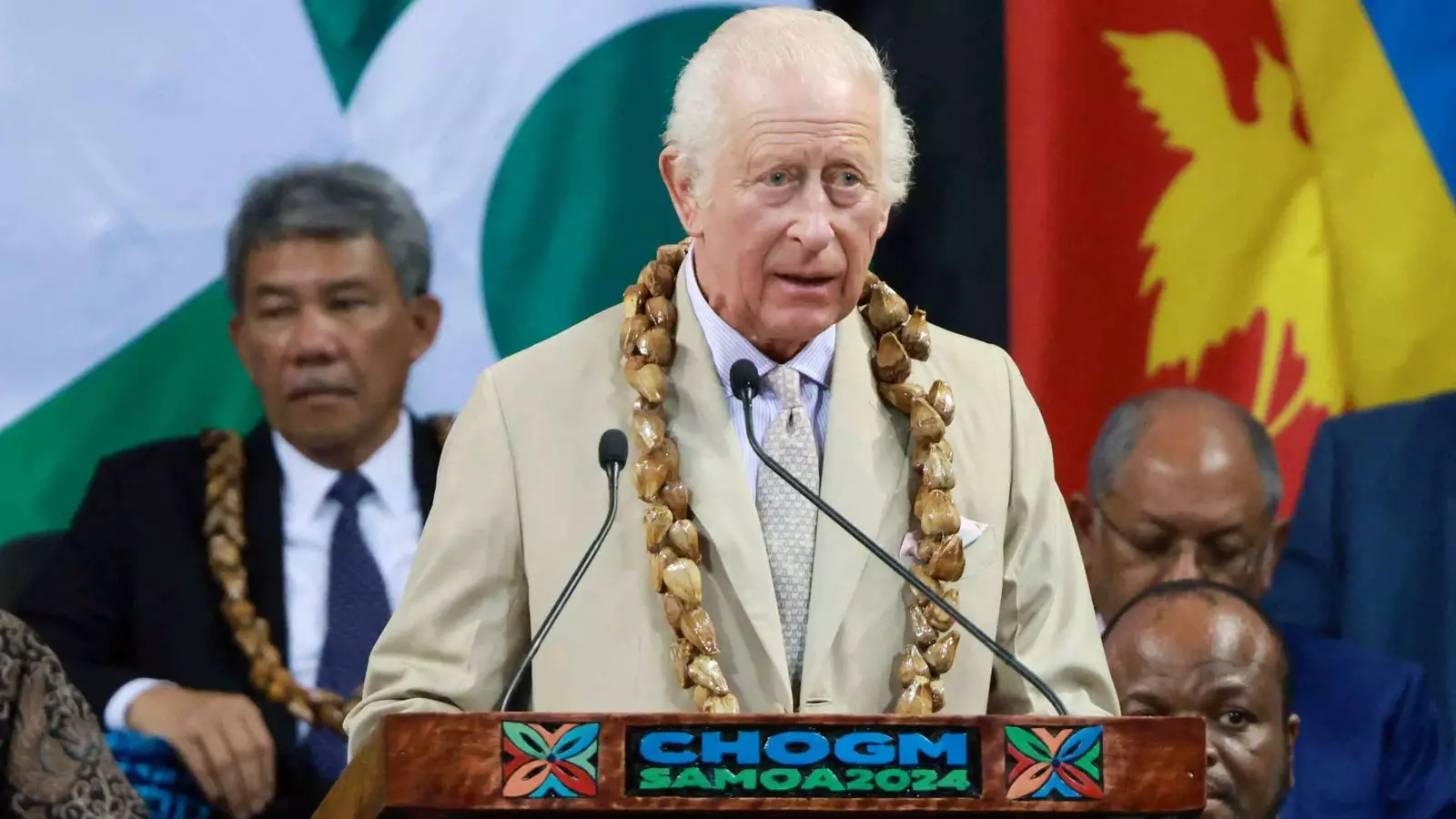The King’s recent address to Commonwealth leaders marks a pivotal moment in his reign, symbolizing his inaugural interaction with a diverse assembly of nations bound by a complex history. This year’s conference in Samoa, themed around a “common future,” starkly contrasts the underlying tensions and growing rifts that plague the Commonwealth. Reparations for the slave trade have emerged as a topic shrouded in emotional fervor, igniting discussions that threaten to underscore the fragility of the Commonwealth’s unity.
In his speech, the King emphasized the significance of acknowledging the past, recognizing that historical injustices resonate deeply with many nations within the Commonwealth. His assertion that lessons learned from history must guide future decisions points to an understanding of the burden that history carries. However, his choice of language carefully navigated around explicit terms such as “slavery” and “reparations,” reflecting an attempt to maintain diplomatic decorum while addressing a sensitive topic. Despite his call for a collaborative commitment to addressing persistent inequalities, critics argue that this approach may lack the substantive action many nations are demanding.
The absence of a definitive apology or acknowledgment of specific reparative obligations has not gone unnoticed. Many Caribbean and African nations have voiced their frustrations, with activists like Eric Phillips underscoring a growing sentiment that without actionable reparations, the Commonwealth may falter in its relevance. Phillips’ remarks illuminate a widespread disillusionment among countries historically impacted by colonial exploitation and enslavement, and they highlight the urgent need for more than rhetorical acknowledgment—an official redress is sought for the enduring inequities stemming from colonial legacies.
Caught in a maelstrom of historical accountability and constitutional duty, the King faces a delicate balancing act. Buckingham Palace has described the monarch as apolitical, asserting that any formal apology would necessitate a consensus from the ruling government. This creates a paradox; while the royal family historically profited from the slave trade, the current framework appears to inhibit candid discourse about reparative justice. The King’s previous expressions of regret regarding slavery underscore a personal acknowledgment of the historical context, yet many feel this falls short of addressing the systemic injustices that require reparative measures.
The conclusion of the King’s speech offered a message of hope and unity, positing that understanding past lessons could lead to a harmonious future. Yet, this sentiment risks being overshadowed by the complexities of contemporary demands for justice and equality. As discussions around reparations continue to provoke strong reactions, the Commonwealth’s stability hangs in the balance. The King’s optimistic remarks, while commendable, may appear perfunctory in light of the pressing need for genuine reconciliation and reform.
The King’s address, while significant, navigates a perilous landscape of historical grievances and contemporary expectations. For the Commonwealth to thrive, more substantial engagement with its past—and a commitment to rectify its lingering inequalities—will be essential. The question remains whether the Commonwealth can reconcile these challenges and emerge as a truly united entity reflecting the values it espouses.


Leave a Reply